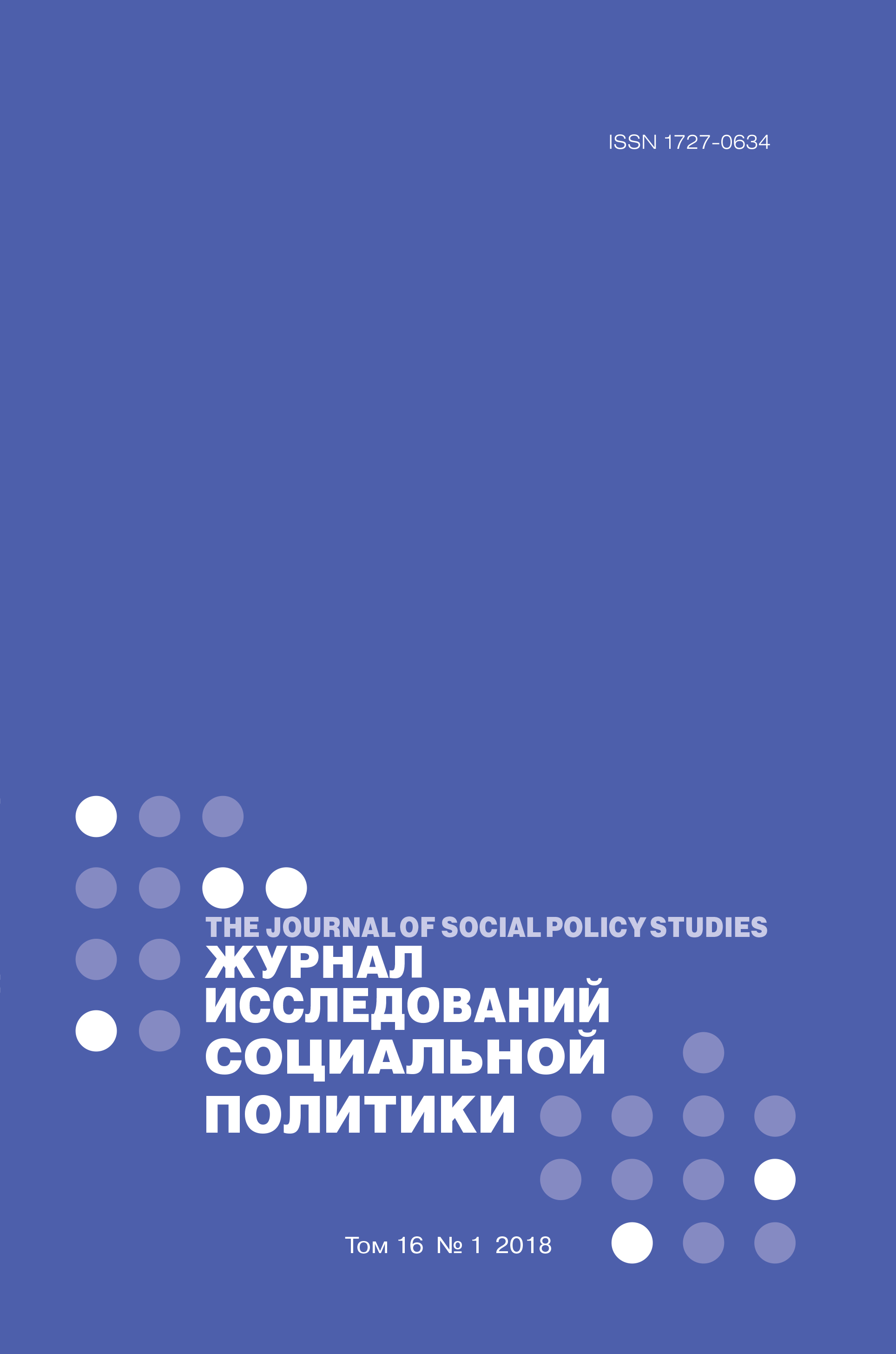The Russian Elderly Well-Being Index (REWI): Methodology, Methods, Approbation
Abstract
Irina Pavlova – PhD (Economy), Senior Lecturer of the Department of Economics, Researcher, Tomsk Polytechnic University, Tomsk, Russian Federation. Email: iapav@mail.ru
Evgeny Monastyrny – Dr. (Economy), Professor of the Department of Economics, leading researcher, Tomsk Polytechnic University, Tomsk, Russian Federation. Email: e.monastyrny@gmail.com
Ilya Gumennikov – Postgraduate Student of the Department of Economics, Research Assistant, Tomsk Polytechnic University, Tomsk, Russian Federation. Email: iv.gumennikov@gmail.com
Galina Barysheva – Dr. (Economy), Head of the Department of Economics, Head of the Wellbeing Lab, Tomsk Polytechnic University, Tomsk, Russian Federation. Email: ganb@tpu.ru
Nowadays, composite indices are often used to provide a comprehensive approach in assessing multifaceted phenomena. This can allow us to monitor the performance of the institutional environment and specific organizations. This article addresses two major issues: (a) whether the available open-source data from federal statistics authorities in Russia can be developed into an instrument that can measure the elderly generation’s well-being at the national level and the level of Russian regions and (b) whether the above instrument can be applied for multi-level analysis of well-being as a complex socioeconomic and psycho-physiological phenomenon. We use systemic and institutional approaches for the methodological justification of the proposed index, as well as a complex multilevel modeling method, to identify the main processes of the well-being as a phenomenon. The main data source is the official statistics of the Federal State Statistics Service (Rosstat), including data retrieved online from the section 'The Older Generation' (official Rosstat’s website), the Comprehensive monitoring of living conditions (2014) and the Selective federal statistical observation on the use of ICT. The main result of the study is the development of a composite index – the Russian Elderly Well-Being Index (REWI) – calculated across all Russian regions. The paper discusses the feasibility of selecting relevant data from the pool of the official statistics indicators for assessing the elderly generation well-being in all 85 regions of the Russian Federation across four index domains (economic, social, health and regional environment dimensions). These domains can also serve as independent subindices for monitoring and evaluating relevant processes in the regions. We formulate limitations for the use of this assessment tool around two points: (1) the methodology specifics of composite indices, (2) the absence or lack of data on regions, e.g. on the processes of emotional well-being.















